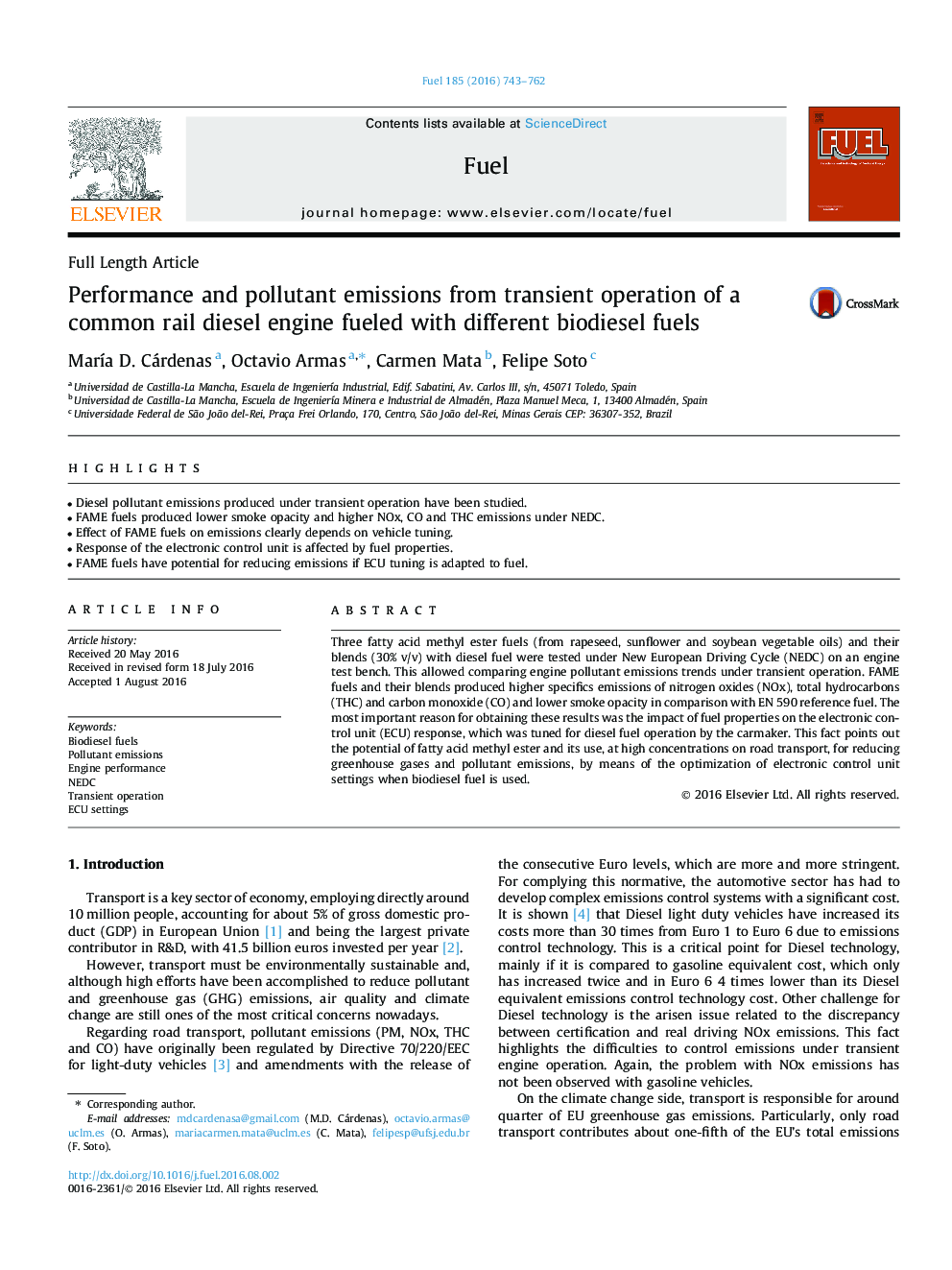| Article ID | Journal | Published Year | Pages | File Type |
|---|---|---|---|---|
| 6632886 | Fuel | 2016 | 20 Pages |
Abstract
Three fatty acid methyl ester fuels (from rapeseed, sunflower and soybean vegetable oils) and their blends (30% v/v) with diesel fuel were tested under New European Driving Cycle (NEDC) on an engine test bench. This allowed comparing engine pollutant emissions trends under transient operation. FAME fuels and their blends produced higher specifics emissions of nitrogen oxides (NOx), total hydrocarbons (THC) and carbon monoxide (CO) and lower smoke opacity in comparison with EN 590 reference fuel. The most important reason for obtaining these results was the impact of fuel properties on the electronic control unit (ECU) response, which was tuned for diesel fuel operation by the carmaker. This fact points out the potential of fatty acid methyl ester and its use, at high concentrations on road transport, for reducing greenhouse gases and pollutant emissions, by means of the optimization of electronic control unit settings when biodiesel fuel is used.
Related Topics
Physical Sciences and Engineering
Chemical Engineering
Chemical Engineering (General)
Authors
MarÃa D. Cárdenas, Octavio Armas, Carmen Mata, Felipe Soto,
